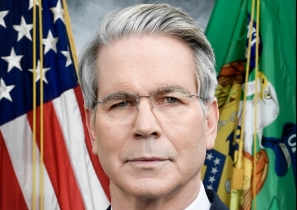
The United States military is coming up on 50 years as an all-volunteer force, at a time when the services are facing a historically difficult uphill battle finding enough qualified volunteers to fill their ranks.
With that in mind, social scientists, military experts and national security strategists came together at the Naval Academy on Wednesday to tackle some pressing questions: What will the military do in 2040, who will serve in it and how will it recruit people?
Diversity is a top-line requirement, multiple experts said. To put a finer point on it, demographic data on the U.S. population shows that women are surpassing men in education as men’s participation in the workforce is dropping. “I think it’s important to say this out loud: we’re going to need to rely more on women,” Lindsay Cohn, an associated professor of national security affairs at the Naval War College, said during a panel at the Future of the All-Volunteer, All-Recruited Force symposium.
“You know, a lot of the skills that we’re going to need are available in the female population,” Cohn continued. “The difficulties that we face with some of the young male population ? and especially in terms of drug use, and in terms of criminal records ? are not as big problems in the female population.”
And the numbers bear that out.
American women are now more likely to be college educated than American men, with a third of 25- to 29-year-old men holding a bachelor’s degree compared to 44% of women in the same age group, according to Richard Fry, a senior researcher at the Pew Research Center.
For the officer corps, college education is a requirement. For enlisted recruiting, the services are competing with colleges for the attention of high school graduates, especially when looking for high-quality recruits.
At the same time, men’s participation in the workforce has been on the decline over the past 30 years, Fry added.
Some of that may be attributed to going to college, but there is another factor: one in seven men in the U.S. has a felony conviction, according to data presented by Nicholas Eberstadt, a political economist at the American Enterprise Institute. Felony records can substantially hamper gainful employment and completely disqualify prospective recruits from military service.
In short, the military has to stop fishing in the same pond, Cohn said, because it’s not stocked in the same way it used to be.
“The issue here is expanding the pool and trying to figure out a way to access as much of the talent available ... and maybe think in new ways about how we get adaptive, creative, problem-solving people,” Cohn said.
Diversity, meanwhile, needs to be a strength, she added, not just a buzzword.
“Tokenism does not work, right? It’s extremely important to recognize that just being like, ‘We’re good, we have diversity, we’re fine.’ That’s not good enough,” Cohn said. “You have to have a culture that recognizes that people with different backgrounds, different experiences, different ways of perceiving things, different languages, different cultures — that is useful. That’s not a weakness. It’s not a problem.”




































